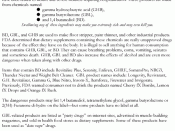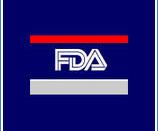The U.S. Food and Drug Administration (FDA) is the part of the Department of Health and Human Services that is responsible for safety regulations for foods, drugs, vaccines, Bio-medical products, blood products, radiation-emitting Technology, cosmetics, veterinary products, and dietary supplements. (2) With the FDA having all of these duties it is easy to see how some things may slip by, but this does not free them of all blame. The FDA has been under the microscope lately due to the E coli and salmonella outbreaks. But one of the big problems itÃÂs had over the past couple years is the topic of dietary supplements and if they should be monitored by the FDA.
Ephedrine based supplements caught the eye of the FDA when people started dying from heart attacks and heat exhaustion due to taking the supplement. To understand why the FDA chose to ban this drug one must first understand the drug and what it does to the human body.
Ephedra is a thermogenic and a stimulant, which increases heart rate, constricts blood vessels thus increasing blood pressure, stimulates the brain, and makes the bronchial tubes expand which makes breathing easier. The weight loss properties come from the thermogenic characteristics which cause an increase in metabolism and body temperature. (5)The first concerns about the ephedra based supplements arose in 1997 when the FDA proposed a ban on supplements containing 8mg or more of ephedrine alkaloids and more detailed labeling on low dose ephedra products. They also proposed that the health risks be labeled also, including heart attack, stroke, and death. (4) But after battling with the ephedra based supplement companiesÃÂ public relations group, known as the Ephedra Education Council, the FDA withdrew its proposal in 2000. That same year the New England Journal of Medicine discovered cases of heart...


